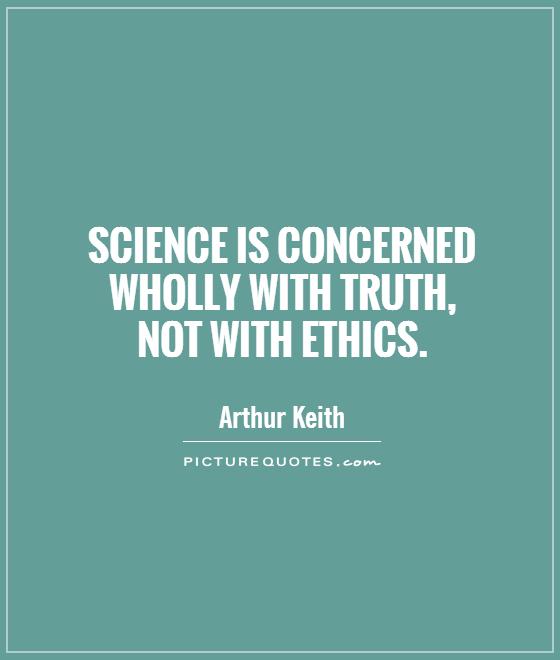Science is concerned wholly with truth, not with ethics

Science is concerned wholly with truth, not with ethics
Arthur Keith, a prominent Scottish anatomist and anthropologist, once famously stated that "Science is concerned wholly with truth, not with ethics." This statement has sparked much debate and discussion among scholars and scientists alike, as it raises important questions about the role of ethics in scientific research and discovery.On one hand, Keith's assertion can be seen as a call for objectivity and impartiality in scientific inquiry. Science, at its core, is about seeking the truth through empirical evidence and rigorous experimentation. In order to uncover the laws of nature and understand the world around us, scientists must adhere to strict standards of evidence and logic. Ethics, on the other hand, deals with moral principles and values that guide human behavior. While ethics is undoubtedly important in many aspects of life, Keith argues that it should not interfere with the pursuit of scientific truth.
However, critics of Keith's statement argue that ethics cannot be divorced from science. In fact, ethical considerations are crucial in determining the direction and impact of scientific research. For example, the field of bioethics deals with complex ethical issues related to medical research, genetic engineering, and other scientific advancements. Without ethical guidelines and regulations, scientists could potentially engage in harmful or unethical practices in the name of scientific progress.
Moreover, the history of science is rife with examples of unethical behavior, such as the Tuskegee syphilis experiment and the Nazi experiments during World War II. These dark chapters in scientific history serve as a stark reminder of the dangers of prioritizing truth over ethics. In light of these ethical breaches, many argue that scientists have a moral responsibility to consider the potential consequences of their research on society and the environment.












 Friendship Quotes
Friendship Quotes Love Quotes
Love Quotes Life Quotes
Life Quotes Funny Quotes
Funny Quotes Motivational Quotes
Motivational Quotes Inspirational Quotes
Inspirational Quotes